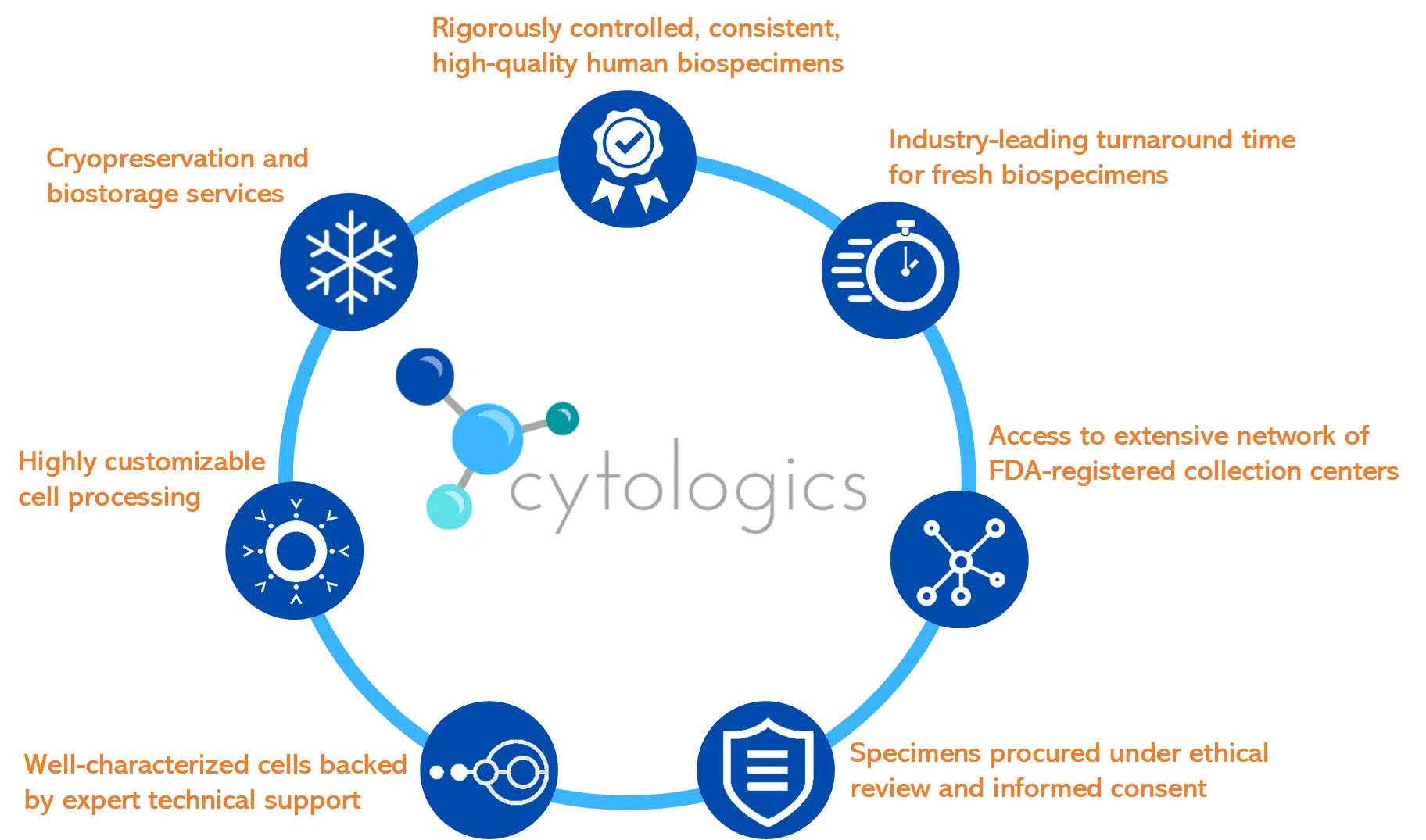Peripheral Blood Mononuclear Cells are the most common type of human cells used in research and provide a useful tool for studying various aspects of biology and pathology. Specifically, researchers conduct experiments with human PBMCs to understand how the human body responds to illnesses, infections and toxins.
In addition to research applications, scientists use PBMCs as positive and negative controls in patient diagnostic techniques, including ELISA, ELISpot, bead-based immunoassays, tetramer and flow cytometry assays. Below is a summary of the various applications and scientific fields for which researchers buy PBMCs:
-
- Immunology
- Infectious disease
- Hematological malignancies
- Vaccine development
- Personalized medicine
- Cell therapies
- Toxicology
- Diagnostic development
PBMC-based experiments are integral for scientific breakthroughs, drug discovery and diagnostic development. More specifically, these experiments help researchers understand how cells function and respond to different types of drug compounds, biologic material or environmental factors.
Given the high importance of these cells in early-stage research, biopharma and diagnostic companies tend to work with biospecimen suppliers with a proven history of delivering PBMCs with high viability, purity and functionality.




